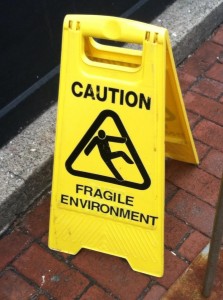Any adoptive parent who had a lousy childhood knows this – the home study is hell. I wasn’t worried about how cl ean my house was. I anguished over my autobiography, wondering how honest I should be when discussing my family of origin.
ean my house was. I anguished over my autobiography, wondering how honest I should be when discussing my family of origin.
When asked if I was close to my father, a man I didn’t see after I was ten months old, could I get away with saying, “We’re not that close?”
I can talk about the humbling home study experiences was and how I dared to believe I could be a good parent despite being an “at risk” child. I can now say how grateful I am for all the time I’ve spent healing and journal writing in my attempt to break the cycle.
But I still wish there were more resources and support for moms WITH A TRAUMA HISTORY such as MYSELF be found so that we can unpack our baggage and keep ourselves and children from tripping over it.
I have been disappointed in the lack of useful information on this subject, disappointed to be unable to find books, Web sites or support groups dedicated to breaking the cycle. Considering how many people are traumatized in childhood this surprises me.
However, one book, “The Whole Parent: How to a Good Parent Even If You Didn’t Have One,” written by Debra Wesselmann, who is also an adoptive mother, is still my favorite.
Published by Da Capa Press in 1998, its content is current. It explains how experiences from our past remain in our psyches and have impact on our parenting. It also examines how parental instincts are broken and mended. Wesselmann describes what secure attachment is, and tells us what it isn’t. While her book is geared towards parents raised in dysfunctional and abusive homes, many chapters would benefit any adoptive parent.
I say this because her book is one of the rare parenting resources with a chapter dedicated to adoptive parents who might try to be a “super parent” either to prove that they can be a parent or because they believe love can “erase” the pain our children feel about adoption-related losses.
Wessleman insists that adoptive parents who endured a difficult childhood construct a solid core; this will be necessary, she advises, to handle the intense emotions their children might have. If we are able to do this, we will be less likely to lose their footing when our children need us most.
This book is fantastic because it manages to be non-shaming about our weak spots while stressing the importance of building some core strengths. It offers a good reminder that it is parents who sometimes need to bolster our attachment and emotional strength to be the best parent we can be for our children.
Most refreshing is the author’s focus on attachment as it pertains to adults who have been traumatized as children. Too often the adoption community views attachment as an issue only for kids, who are viewed on an “Are they or aren’t they?” scale.
It’s a great relief to take our children out from under the attachment microscope and realize children and their parents form attachments together. Wesselmann turns our focus away from watching the water (child) to see if it’s boiling and toward making sure there’s a working stove (parent) in the house.
“The Whole Parent” is an accessible and easy book to read. Even the busiest parent can do the exercises she suggests and benefit from the author’s insights.
For those who come to parenting with a wonderful childhood experience, this book can help to explain why those who grew up in circumstances of neglect and abuse, multiple transitions and early loss need tender loving care when dealing with our old wounds.
It explains why pain can be so long-lasting, patterns deeply entrenched, and the consciousness needed to break the cycle. Reading the book energized me, reminding me how crucial it is to be present and honest and to keep working on my relationship with myself and my past in order to be a better person and parent.
My daughter deserves nothing less and neither do I.
This is adapted and updated from a review I wrote for the Families with Children from China (FCC) newsletter and the www.rainbowkids.com website.
You Matter Mantras
- Trauma sucks. You don't.
- Write to express not to impress.
- It's not trauma informed if it's not informed by trauma survivors.
- Breathing isn't optional.
You Are Invited Too & To:
- Heal Write Now on Facebook
- Parenting with ACEs at the ACEsConectionNetwork
- The #FacesOfPTSD campaign.
- When I'm not post-traumatically pissed or stressed I try to Twitter, Instagram & Pinterest.
Speak Your Mind